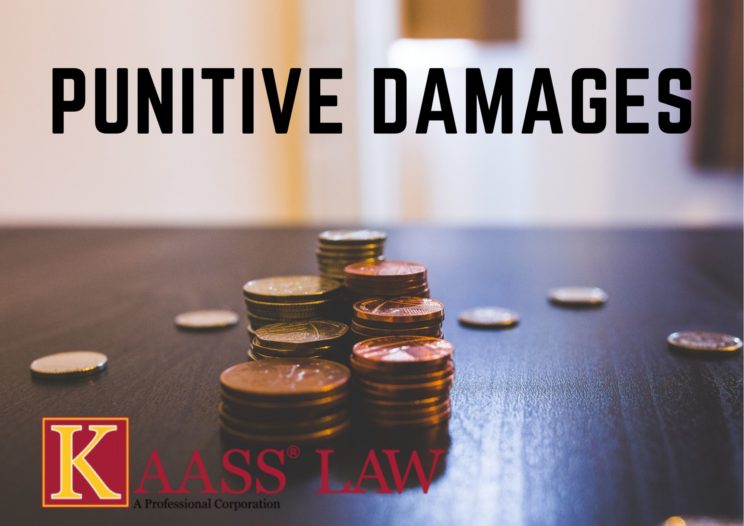What Are Punitive Damages?
Punitive damages are damages that a defendant in a civil action can be ordered to pay to punish him for egregious conducting including employment claims and personal injury.
Commonly, punitive damages can’t be awarded for a simple breach of contract, but can be awarded in cases such as insurance company bad faith when the company unlawfully refuses to pay a legitimate claim. California Civil Code Section 3294 allows a jury to award punitive damages to the plaintiff in a personal injury case. The plaintiff must be able to establish convincing and clear evidence that the defendant’s conduct amounted to oppression, malice or fraud.
Malice, Oppression and Fraud
California Civil Code Section 3294(c) gives the following definition to “malice,” “oppression” and “fraud”:
- “Malice” is a conduct which is intended by the defendant to cause injury and harm to the plaintiff, or despicable conduct which is carried on by the defendant with a willful and absolute disregard of the rights or safety of other people.
- “Oppression” is a despicable conduct which subjects a person to unjust and cruel hardship in conscious disregard of that person’s rights. Despicable conduct is conduct that is so base, vile, or contemptible that it would be looked down on and despised by any reasonable person
- “Fraud” is an intentional misrepresentation, concealment or deceit of a material fact known to the defendant with the intention on the part of the defendant of thereby depriving a person of legal rights or property or otherwise causing injury.
Employer’s Liability to Pay Punitive Damages in California
When dealing with a company as opposed to a private person, California Civil Code section 3294 states that the employer shouldn’t be legally liable for punitive damages, based upon acts of his employee, unless the employer had reasonable knowledge of the unfitness of the employee and hired him with a conscious disregard of the rights or safety of other people or ratified or authorized the illegal conduct for which the damages are awarded, or was personally guilty of fraud, oppression, or malice.
With respect to a corporate employer, the reasonable knowledge and conscious disregard, ratification, authorization, or act of oppression, malice or fraud must be on the part of the director, officer, or managing agent of the corporation.
Common Examples of When Punitive Damages May Be Awarded to the Plaintiff
Some common scenarios include the following:
- Car accident claims when it is established that the at-fault party was driving under the influence of drugs or alcohol or drugs
- Business torts where it is proven that one party has committed fraud on another one.
- Intentional torts such as battery and assault
- Wrongful termination of employment claims.
Considered Factors When Determining the Amount of Punitive Damages in California
According to CACI 3940 the jury considers several factors when deciding the amount of punitive damages. Here are some of them:
- How reprehensible was the defendant’s conduct
- Whether the defendant’s conduct caused physical harm
- Whether the defendant disregarded the health or safety of others
- Whether the plaintiff was financially weak or vulnerable
- Whether the defendant acted with trickery or deceit
- Whether there is a reasonable relationship between the amount of punitive damages and the plaintiff’s harm

